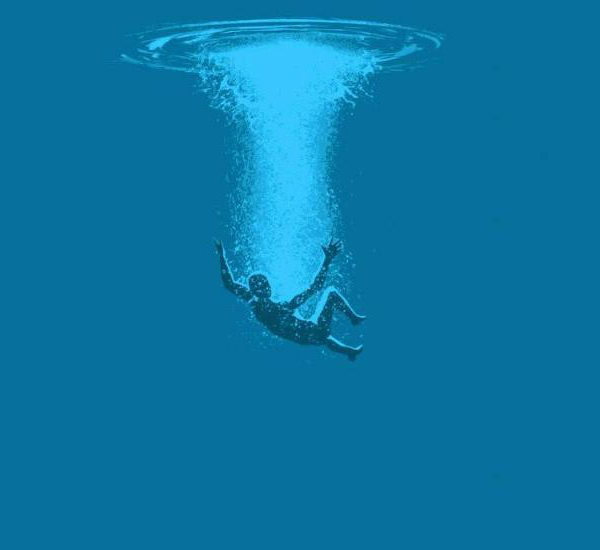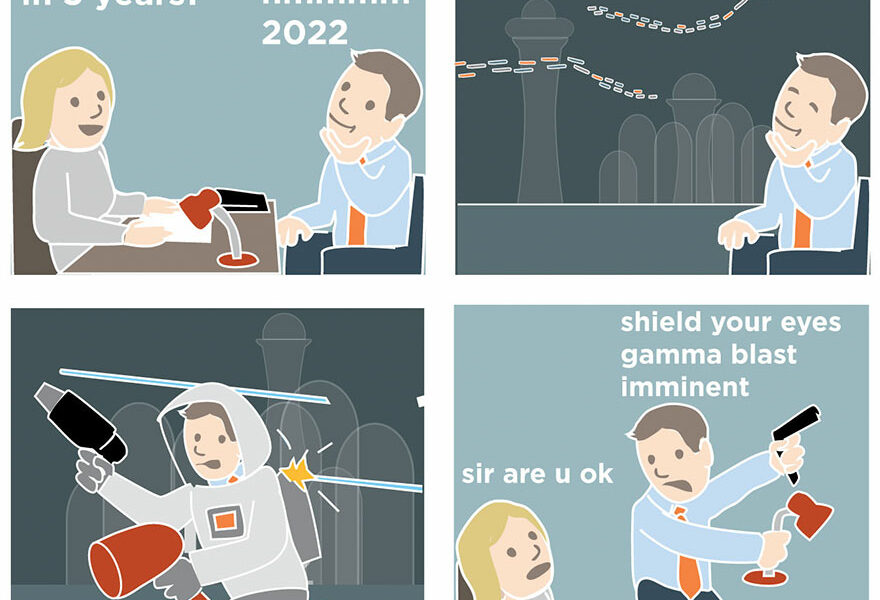I don’t know exactly when it was or what project it was on, but at some point in the distant past, I wrote and pushed like my last line of commercial code into production. I then found myself managing and leading digital delivery and eventually people and teams.
Whether it’s my own personal experience, reading about others or witnessing people move from baing hands-on, into management, one thing almost always seems to be true.
Almost everyone who goes from a heavily hands-on technical role into management has a transition period where they question frequently whether they’ve made a mistake.
Camille Fournier
There’s a multitude of valid reasons why new managers and leaders this way. I believe a big reason is how the nature of job satisfaction changes and how unprepared for it they are.
Instant engineering satisfaction
Whether I was hitting a ‘publish to live’ button in a content management system or refreshing a browser after thinking I’d fixed a CSS bug, I got the same feeling. I was so damn excited.
This feeling would even invade my personal hygiene moments! Often, when confronted with a stubborn engineering problem to solve, for some reason, a possible solution would pop into my head while showering and I’d make quick work of washing and drying so I could flip the laptop open and try it.

Having had several previous jobs before finding my way into an industry I was passionate about, I was always especially appreciative of this feeling.
To get paid to do something that gives you this feeling is to be seriously lucky in life and when engineers are griping about something, I always feel compelled to remind them of this fact.
Not all engineering-based satisfaction is instant but when compared to the satisfaction timeline of a manager, it really is. It’s a short, intense buzz that dissipates relatively quickly as you move onto the next problem to solve. Seriously fun times.
Digital delivery satisfaction
As I transitioned into digital delivery, one of the first differences I noticed was the loss of the instant intense buzz. It was what initially made me question if I’d made a mistake in moving away from engineering.
Far from being seriously fun times, I’d not only lost that feeling of excitement and the intense buzz of fixing a bug or figuring out how to build a feature but it seemed that I’d replaced them with stress, an inbox full of mails and clients to speak to.
A return to engineering seemed inevitable but then I noticed something. As I did more digital delivery and got a little better at it, at the end projects, some people involved would start to make comments. Designers, copywriters, engineers and even clients would say things like…
That project went really well, much better than many I’ve worked on previously.
While these were just casual remarks to them, to me, it meant a lot. It was my new buzz.
It wasn’t a better or worse buzz, it was just different. It was less intense but deeper and longer-lasting. While not the same as instant engineering satisfaction, it was somehow more meaningful.
I now know that it felt this way because it had taken a lot more effort and a much longer time to achieve than when solving an engineering problem. Another reason it felt more meaningful was that I knew I’d helped people and not just a codebase.
This became my motivation to do good digital delivery work. It made me realise that creating environments that enabled people to enjoy their work a little more, was harder, took longer but was really rewarding.
Management satisfaction
When I moved from engineering to digital delivery, it took maybe six months to a year to recognise where the new satisfaction and motivation would come from. When I moved into management, it took much longer and this is what no one prepares you for.
When you move into management, a big part of the job is developing people, planning and implementing strategic changes or managing big programmes of work. All of these are highly unpredictable endeavours and take a long time.

In fact, it takes so much time, that when you first start out, you can spend an age looking for the first returns on your efforts. So long that you’ll naturally begin to question if you’re having any positive effect at all.
Coding is full of quick wins for the senior developer. You see new features come to life. But management has few quick wins. It’s natural to feel a longing for when it was just you and the computer, and you didn’t have to deal with all these messy, complicated humans.
Camille Fournier, The Manager’s Path
Then, one day, it happens. At some stage, you’ll see someone you’ve been developing, step up and start to do things they wouldn’t have previously done, green shoots from a strategic change initiative or some stars aligning and completion of parts of a large programme of work. Then the satisfaction will hit you. This is your new buzz.
This buzz takes even longer to present itself. It’s less intense than the engineering or digital delivery one but tramples on both in terms of depth and meaningfulness.
You have positively affected human beings and their entire work environment. I don’t think it gets any better than that.
I got lucky by moving to digital delivery first
Fixing bugs can take a few hours or a few days but the end is always in sight and the results are clear and immediate. Delivering digital projects or products can take weeks or months but the end state is always known and the results are easy to see.
Management wins can take months or even years and not be quite so easy to spot as they often evolve more than are delivered.

By moving to digital delivery after engineering, I got lucky because it enabled me to more quickly realise that the buzz and satisfaction were there to be had but just took longer, more work and were of a different type.
If I’d moved straight from engineering to management, I could’ve easily lost motivation to keep going due to lack of results and questioned my move. I think many who move from hands-on into management roles question themselves in the early days because of this.
Management is a highly rewarding but long haul game
The engineering, digital delivery and management buzzes are all different. I don’t believe one replaces another.
Whether it’s the loud ‘YES!!!‘ of fixing a bug, to the barely noticeable smile and a huge sense of pride at seeing someone you manage excel – if you’re lucky, your management role will allow you to experience them all.
If you’re new to management, especially from a hands-on role, then just understand that:
- The satisfaction will take a lot longer to attain but be deeply meaningful.
- It will take much more effort than any bug you’ve ever fixed.
- At times, it will feel like the longest game of chess you’ve ever played.
- It probably won’t be a story of smooth progress but contain many bumps in the road.
- Many people, including those you help, may never even realise what role you played.
- You’ll probably question your move into management many times.
- There may be long periods where you wonder if you’re doing much good at all.
- You’ll make mistakes and that’s ok.
- All of the above is completely normal.
Management is a long haul game but if you keep at it, if you keep the objectives in mind, maintain good intentions, high effort and unwavering belief in your mission, you will make a difference and be able to see it eventually.

This shit’s chess, it ain’t checkers.
Alonzo Harris, Training Day
Get those first few wins under your belt and you’ll begin to believe in yourself.
Notice how you can make a real difference in people’s lives and you’ll hopefully stop questioning yourself and your move from engineering to management.









Leave a Comment